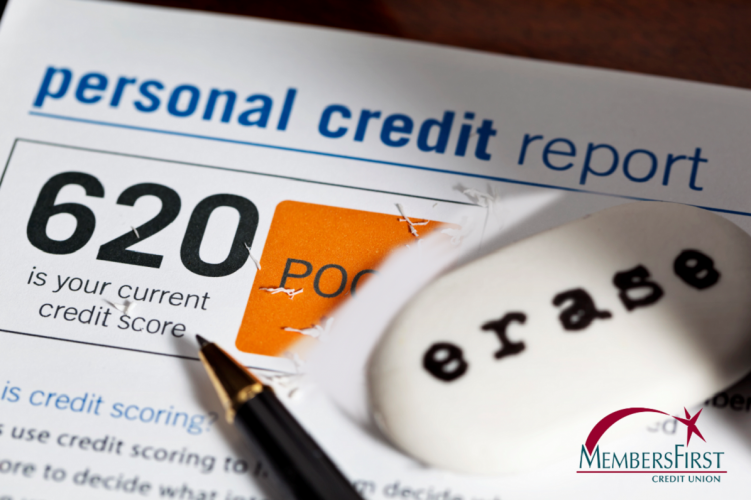If you’ve recently been rejected for credit of any kind, you may be looking at a poor credit score for any number of reasons. You might have been late with your credit card payments, have an outstanding judgment against you or have even been frauded or victimized by identity theft.
Whatever the cause of the fall in your score, you’re probably looking for ways to get it back on track. Tread carefully! There are lots of dishonest opportunists looking to make a quick buck off your pressing need. Don’t become the next victim of a credit repair scam. In fact, there’s nothing a credit repair company can do for you that you can’t do yourself.
This probably has you wondering how to untangle the legitimate steps you should be taking now from the pointless and costly actions. Look no further! Our handy guide of credit repair do’s and don’ts will help get you on the road to improving your credit score.
Do: Determine your actual credit score.
If a recent credit application of yours has been denied, don’t take it at face value – find out why it happened. The three major credit reporting agencies – Equifax, Experian, and TransUnion – are each required to provide you with a complimentary copy of your credit report once a year, upon request. To order yours, visit annualcreditreport.com, or call 1-877-322-8228.
If you’ve already requested a report from each of the agencies in the last 12 months, you can still get one free of charge; you are entitled to a free report whenever a company takes adverse action against you, such as denying your application for credit, insurance or employment. To qualify, just request a report within 60 days of receiving notice of the action.
Do: Review your report and dispute any errors.
Once you receive your report, review it for inaccuracies. If you spot any fraudulent purchases or erroneous information, you’ll need to dispute them in writing. In your letter, identify every item you are disputing and the reasoning behind your claim. Include copies of documents that support your stance and ask that the errors be removed or corrected. It’s best to send your letter by certified mail so you can ensure the credit reporting company actually received it if that is necessary. Also, keep a personal copy of your letter and all supporting documents for your own records.
You’ll also need to dispute the charge with your actual creditor, taking the same steps you did above.
Don’t: Expect any quick fixes.
Anxious as you may be to improve your score, know that there is no “quick fix” for creditworthiness. Enhancing your score takes time, lots of hard work and creating and sticking to a realistic debt repayment plan.
If your credit score is poor, you may be bombarded with promotional material from credit repair companies that promise to increase your score by 100 points in less than a month. If you think these claims sound too good to be true, you’re absolutely right. There are some legitimate credit repair companies out there, but as mentioned, there’s nothing they can do for you that you can’t do on your own – and without paying their hefty fee.
Do: Take steps toward fixing your credit.
If you’ve determined that your credit report is accurate, you’ll want to take a careful look at the habits that may be leading to your unfavorable score.
Are you timely with your credit card payments? If you’re consistently late, consider setting up an automatic bill pay system so you never forget to make a payment. Are you making headway on your debt? If you’re paying your bills on time but your debt is not going anywhere, it’s time to rethink your spending habits. Don’t shop with credit cards; use only debit or cash. Look for ways to trim your expenses, like couponing wherever possible, planning dinner menus around sale items, and finding cost-free ways to relax instead of blowing money at a restaurant or on retail therapy.
Are your monthly bills unmanageable? If you can’t make it through the month and still meet all of your minimum payments, your debt may need an overhaul. Consider debt consolidation, in which your debt is transferred to one low-interest account, or a balance transfer to a card that has lower interest. Be aware, though, that lots of open credit is not considered favorable by creditors; close as many accounts as you open – but leave your oldest one open as it shows a longer period of credibility.
If you find a zero-interest card, keep in mind no card is interest-free forever. When the introductory period ends, you may be hit with higher than usual interest rates. Alternatively, you can contact your creditors and work out a more reasonable payment plan.
If these options don’t sound feasible, try finding ways to increase your income instead, using all extra cash exclusively for paying down your debt.
Don’t: Expect to see any changes immediately.
Don’t fret if you’ve made strides toward fixing your credit and haven’t yet seen an increase in your score. Creditors will only report to the credit reporting agencies on a periodic basis, usually once a month. It may take upward of 30 days or more for your account to be updated and your score to begin improving.
Do: Ask us for help.
Here at MembersFirst Credit Union, we’re committed to helping you manage your finances with education opportunities and the right products and services. If you’re in financial trouble, we can help! Stop by today to ask about our credit services and assistance with creating and sticking to a budget. If you need a bit more help, we offer great credit building and rebuilding programs, including loans for first-time borrowers, car buyers and secured credit cards. We even offer debt reduction loans, providing you the opportunity to transfer your debt to one low-interest, fixed-rate loan, making the prospect of paying down your debt a lot more manageable.


